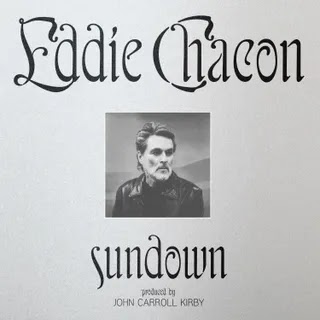The breakout Nigerian star’s second EP explores new sounds even as it returns to familiar ideas—her ongoing search for peace, love, and emotional clarity.
This time last year, rising Nigerian pop star Tems was just about to unleash her debut EP, For Broken Ears. From the project’s seven bubbling tracks, the trio of “Damages,” “Free Mind,” and “The Key” stood out, and lead single “Damages” became the top-played song on Nigerian radio. The following months alerted the rest of the world to the magic of Tems: She offered a captivating performance on WizKid’s “Essence,” which secured a spot on Billboard Hot 100; a Justin Bieber-featuring remix elevated it into the Top 20. A short clip of Adele meeting Tems and joyfully singing Tems’ own song “Try Me” to her circulated online, and Drake engaged her for “Fountains,” a slow-burning track on his recent Certified Lover Boy. Now—with looks from some of the biggest artists in the world—Tems returns with a follow-up EP, If Orange Was a Place.
Even before she soared to mainstream recognition, Tems was protective of her signature sound. Early on in her career, she faced pressure from industry professionals to tweak her approach in order to succeed within the Nigerian music climate, she said in a recent radio interview. Tems, however, stuck with the distinctly emotional approach that lit up For Broken Ears, a collection of songs that sounded as deeply personal and turbulent as handwritten letters. Coupled with her freewheeling delivery and emotional rawness, whatever doubt anyone had about her artistry was dispelled.
If Orange Was a Place takes on a different texture and mood. If there’s any element still resonant, it’s Tems’ unrestricted expression, which she makes evident from opener and lead single “Crazy Tings.” Over brooding melodies and groovy percussion, Tems cooly sings about an estranged lover’s faults and pleas for peace: “Give me time/I need space.” The uptempo vibes of “Crazy Tings” slows on the Brent Faiyaz-assisted “Found.” Musically, the track recalls the early version of Tems, who loved to display her vocal prowess over gently strummed guitar. Turbulent feelings still weigh heavy on her mind, and she isn’t done analyzing them, concluding, “Basically, I might not be weak.” But by comparison to the clear emotional snapshots of From Broken Ears, the songwriting feels hazy. Faiyaz, seemingly playing the role of a comforting presence, offers words of healing and reassurance: “If you had you’ll forgive the past.”
After the moody haze of “Found,” the EP jerks back to vibrancy with the heady, swirling melodies and crisp, jazzy horns of “Replay.” Tems is coasting, soaring comfortably as she revels in her own elusive power: “Oh, my voice is a mystery,” she declares. Towards the end, she taps into intriguing pockets of melodies to empty her stash of unhealthy emotions: loneliness, heartbreak, and an unfortunate recent experience in Uganda, where Tems and fellow Nigerian artist Omah Lay were arrested last year for allegedly flouting COVID-19 protocols.
The similarity that links this EP and its predecessor is Tems’ preference to air her worries and talk about the darkness residing within. Save for closer “Vibe Out,” many of the songs linger in a familiar headspace—ruminating on being taken for granted as a lover, or trying to free oneself from the remnants of toxic emotions. Though she ups the ante on “Replay” and “Crazy Tings,” the more usual fare on “Found” and “Vibe Out” sometimes overshadows the new ideas, clouding the project’s intentions. If Orange Was a Place might not provide the same instant gratification as her debut, but it’s a presentation of her vulnerable self.
















0 comments:
Post a Comment